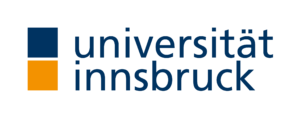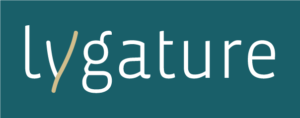A balanced team of international excellence across all project areas
The HEAP project partners specialize in areas including data collection and processing, ethical and legal matters, information technology infrastructure and software, and communication and training. The 11 project partners include nine academic institutions and two small and medium enterprises (SMEs), from six European countries.
The lead partner for HEAP will be Karolinska Institutet, which has extensive experience and expertise in delivering more than 150 European Union projects through the Horizon 2020 programme.
Karolinska Institutet (KI) (Sweden)
Karolinska Institutet is Sweden’s largest medical research centre and one of the world’s foremost medical universities. Since 1901, its Nobel Assembly has selected Laureates in Physiology or Medicine. Through its work with the Nobel Prize, Karolinska Institutet has developed an unparalleled contact network and breadth of insight into medical research around the globe.
Role within HEAP: Karolinska Institutet is managing and coordinating the overall delivery of the HEAP project and leads three of the Work Packages: Management (WP1) Exposome Monitoring and Metabolomics Profiling (WP5) Cluster Activities (WP12).
Statens Serum Institut (Denmark)
Statens Serum Institut (SSI) is one of Denmark’s largest research institutes and is attached to the Danish Ministry of Health. Its role is to ensure preparedness against infectious diseases and biological threats, as well as monitoring congenital disorders. SSI hosts the Danish National Biobank, which contains over 22 million biological samples, including serum, plasma, buffy coat, whole blood, and DNA.
Role within HEAP: SSI is leading the Consumer Exposure Monitoring System Work Package (WP4).
CSC – IT Center for Science (Finland)
CSC – IT Center for Science is a Finnish non-profit state enterprise providing information technology services for higher education, research, and cultural institutes. CSC has specialist expertise in data management, data analytics, scientific computing, and information system interoperability.
Role within HEAP: CSC leads the Secure Infrastructure for Big Data Work Package (WP10).
Hopsworks is a technology company in the artificial intelligence field, and is the developer of the Hopsworks Platform as a Service (PaaS), an open-source, horizontally scalable information technology platform for storage and processing of sensitive health-care data. Hopsworks’ unique, multi-tenant security model can support advanced machine and deep learning software.
Role within HEAP: Hopworks is leading the delivery of the Informatics Platform and Knowledge Engine Work Package (WP6), which will extend the Hopsworks PaaS to accommodate data warehousing, allow stream processing to capture data from real-time exposome monitoring systems, and enable deep learning and advanced analytics.
The Medical University of Graz (MUG) (Austria)
The Medical University of Graz specializes in sustainable health research. It operates a Comprehensive Cancer Center and hosts the Austrian national node of the European Biobanking and Biomolecular Resources Research Infrastructure (BBMRI-ERIC) and Austria’s national digital pathology infrastructure. MUG participates in several international exchange programmes for researchers, teachers, and students.
Role within HEAP: MUG is leading the Data Interoperability and Sharing Work Package (WP7), focused on the efficient use and quality of the HEAP Information Commons.
University of Innsbruck (UIBK) (Austria)
The University of Innsbruck (UIBK) is western Austria’s most renowned university, with extensive experience in managing large-scale research grants. Over the past decade, UIBK has coordinated over 45 and taken part in more than 180 European Union (EU) projects within the FP7 and Horizon 2020 funding programmes. A principal research area for UIBK is cancer diagnosis and prevention through its Research Institute for Biomedical Ageing Research, which aims to improve understanding of age-related changes and impairments, to mitigate and prevent age-related problems, and to improve quality of life in old age.
Role within HEAP: UIBK is the lead partner of the Epigenomic Analysis Work Package (WP8)
Lygature (Netherlands)
The Lygature Foundation facilitates large multistakeholder partnerships for innovation in the life sciences and health sector, building upon pioneering partnerships since 2006. The Lygature foundation has extensive expertise in running (international) public-private partnerships and has in-depth knowledge on topics like data sharing, regulatory innovation, public and patient engagement, and health law, privacy and ethics.
Role within HEAP: Lygature leads the Ethics and Regulations Work Package (WP2), providing HEAP with expertise in ethics and law, in particular regarding compliance with European GDPR data regulations, and national and institutional regulations.
The Interdisciplinary Centre for Mathematical and Computational Modelling (ICM) is a supercomputing and research data centre at the University of Warsaw. It is internationally recognised as a provider of wide-range e-infrastructure services.
ICM research encompasses computational and information sciences, with a focus on mathematical foundations and wider applications in science, technology and e-economy. ICM fosters openness, ranging from open publishing to open data and open software. This is reflected in numerous initiatives and developments aimed at the general public.
Role within HEAP: ICM is the lead partner of the Metagenomics Analysis Work Package (WP9).
The Pirkanmaa Hospital District (TAUH) (Finland)
The Pirkanmaa Hospital District is a Finnish municipal authority providing specialised health care and disabled care services to a catchment area of 1 million people. Pirkanmaa Hospital District’s research for HEAP is part of a larger network, FICAN-Mid, which focuses on cancer prevention, diagnostics and care, and cancer research based at the University of Tampere Hospital. It involves randomized trials on the impact of cancer prevention vaccination and screening programmes.
Role within HEAP: The Pirkanmaa Hospital District is leading the Large Sample Cohorts from Population-Based Interventions Work Package (WP3) and supporting the delivery of Exposome Monitoring and Metabolomics Profiling (WP5).
The International Agency for Research on Cancer (IARC) (International Organization)
The International Agency for Research on Cancer (IARC) is the specialized cancer agency of the World Health Organization. The Agency is interdisciplinary, offering expertise in epidemiology, laboratory sciences, and biostatistics. Aided by its independent role as an international organization, IARC coordinates research across countries and between institutions. One of the products of this coordinating role is an increasingly important biobank, which holds approximately 6 million samples from 600 000 subjects.
Role within HEAP: IARC is leading the Education and Dissemination Work Package (WP11) and is supporting Management (WP1) and Cluster Activities (WP12).
The University of Oulu (Finland)
The University of Oulu conducts research into factors that affect health, and studies human life from fetal development to old age, including molecular and physiological properties and environmental, social, and psychosocial factors. The university specializes in combining information technology with health and service research to create innovations in connected health.
Role within HEAP: The University of Oulu is supporting the Management Work Package (WP1), Large Sample Cohorts from Population-Based Interventions (WP3), Exposome Monitoring and Metabolomics Profiling (WP5), Secure Infrastructure for Big Data (WP10), and Education and Dissemination (WP11).











